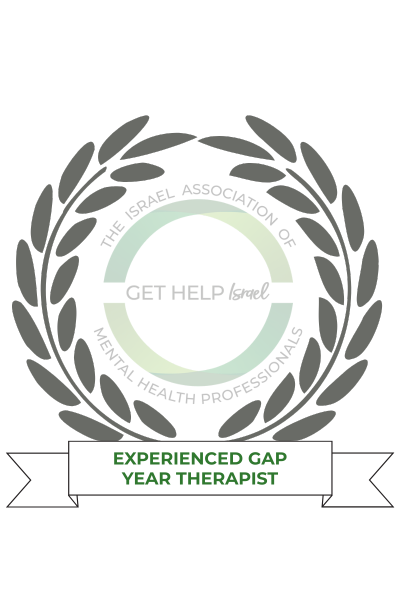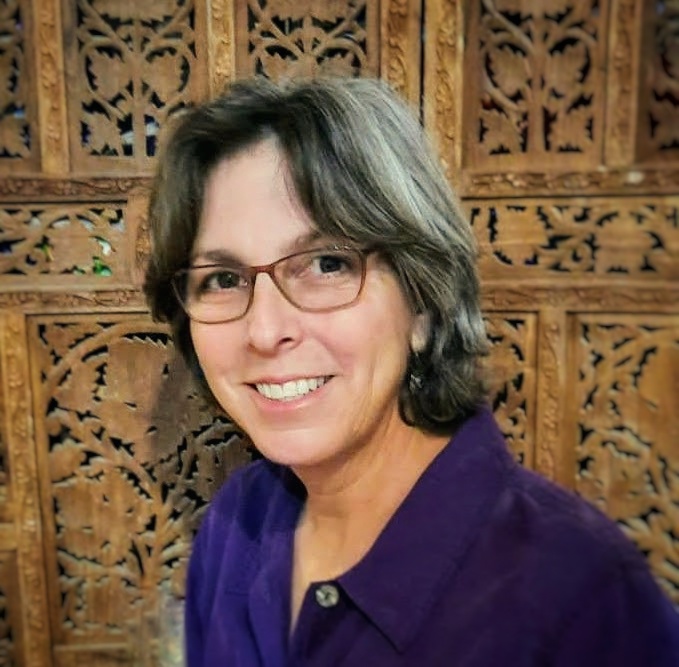Leigh Bar-Yakov
Credentials
Finances
Licensed in Israel
- Emek Rafaim 64, Baka
- Jerusalem
- HaSheizaf Street
- Moshav Nes Harim, 99885
Leigh Bar-Yakov
 Verified
Verified
Credentials
Clinical Psychologist
PsyD
Finances
Private Insurance
Sliding Scale | Free Consultation | Student Discount
- Emek Rafaim 64, Baka
- Jerusalem
- HaSheizaf Street
- Moshav Nes Harim, 99885
ABOUT THE THERAPIST
I am a licensed clinical psychologist, with a MA and Doctorate in Clinical Psychology from Carlos Albizu University (2001), and BA from Bar-Ilan University. I am a practitioner and certified facilitator of the Gordan Neufeld Institute. I have worked with diverse populations treating a wide range of issues in settings such as a highschool for troubled teens, university and public mental health clinics, an out-patient psychiatric dual diagnosis and geriatric treatment facility, a residential eating disorder center, and private practice.
My goal as a therapist is to provide for my clients a safe, understanding and empathic environment from which to explore both their relationship with themselves and others and thus facilitate the process of self-reflection, growth and emotional healing that allows them to reach their personal full potenial. For insight, I draw primarily from relational and developmental attachment paradigms. Depending on the specific needs of the individual, I integrate evidence-based approaches such as psychodynatic psychotherapy, expressive therapy and cognitive techniques such as mindfulness, somatic awareness, and Seefar CBT (for the treatment of trauma). I also provide parental and educational consultation and facilitate parenting workshops and seminars. As a parental consultant, I help parents and educators deepen their attachments with their children and students, providing the guidance needed to raise responsible and caring children without becoming overwhelmed by this often confusing and seemingly daunting task.
QUALIFICATIONS
PsyD
Carlos Albizu University
2001
Degree
PsyDEducation
Carlos Albizu UniversityYear of Graduation
2001Years in Practice
20
REGISTERED PSYCHOLOGIST IN ISRAEL
Registration in Pinkas Hapsichologim
41252
Mumche Category
Clinical Psychologist
Mumche License Number
27-6963
ADDITIONAL CREDENTIALS
Course Facilitator - Neufeld Institute 2014
See Far CBT certification - Professor Moli Lahad and Miki Doron - 2022
DISTANCE COUNSELING
Online Therapy
PRIMARY SPECIALTIES
Anxiety / Panic
Family Issues
Mood Disorders
Parenting Issues / Training
Trauma / Post Traumatic Stress Disorder PTSD
ADDITIONAL SPECIALTIES
Adjustments
Behavioral Concerns In Children
Couples / Relationship / Marriage Counseling
Depression
Divorce / Custody
Eating Disorders
Life Transitions
Personality Disorders
Self-Esteem
Sexual Abuse / Rape
Attachment issues
CLIENT FOCUS
Population
Adults
Couples
Men
Women
Geriatric
Languages Spoken
Hebrew
English
TREATMENT APPROACH
Mindfulness-Based Cognitive Therapy (MBCT)Mindfulness-Based Cognitive Therapy (MBCT) is a form of therapy that combines cognitive behavioral therapy with mindfulness practices. It is based on the idea that our thoughts, emotions, and physical sensations can affect our mental health. MBCT helps individuals become aware of their thoughts, emotions, and physical sensations in order to gain insight and control over them. MBCT helps clients learn how to recognize their sense of being and see themselves as separate from their thoughts and moods. This separation can free the client from thought patterns in which the repeated negative messages may be dominating the client’s focus. After developing an awareness of the separation between thoughts, emotions, and the self, people in treatment may find that while the self and the emotions may exist simultaneously, they do not have to exist within the same dimension. The healing can take place when one learns how to interject positive thoughts into negative moods and thereby create a shift in mood.
Psychodynamic TherapyPsychodynamic therapy is a form of therapy that focuses on the unconscious mind and how it affects behavior. It works to help people understand and work through past experiences and feelings that may be causing difficulties in the present. This type of therapy encourages individuals to explore their emotions, relationships, and behaviors in order to gain insight into their current difficulties. It can help individuals better understand themselves and their motivations, and gain insight into how past events have impacted their current lives. People tend to develop defense mechanisms when faced with challenges in life. Defense mechanisms may keep painful feelings, memories, and experiences in the unconscious. A few common defense mechanisms include: denial, repression, and rationalization. Psychodynamic therapists encourage people to speak freely about their emotions, desires, and fears. Being open may help uncover vulnerable feelings that have been pushed out of conscious awareness. According to psychodynamic theory, behavior is influenced by unconscious thought. Once painful feelings are brought forth and processed, the defense mechanisms are no longer needed and a person in treatment can start changing unhelpful patterns when coping with life’s challenges.
Relational PsychotherapyRelational psychotherapy is a form of psychotherapy that focuses on a person’s relationships with others and the dynamics between them. It emphasizes the importance of the therapeutic relationship between the client and the therapist, and it explores the meaning and purpose of relationships in the client’s life. Relational psychotherapy seeks to understand how the client’s past relationships shape their current experiences and how the client interacts with others. The goal is to help the person develop healthier relationships and better communication skills so they can become more emotionally connected to others.
See Far CBT
SERVICES OFFERED
Individual Therapy
Consultation
Couples Therapy
Group Therapy
Hadrachat Horim
Workshops/Educating

Therapist's Experience with Gap Year Students
I provide therapy and offer emotional and maintainance support to young adults experiencing the challenges of a gap year - adjusting to a new environment, language, country, social milueu, and program while in the absence of familiar support systems.

 Verified
Verified

